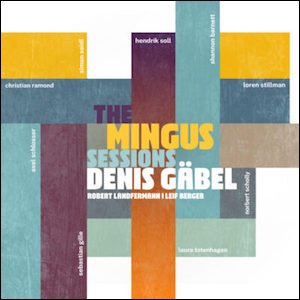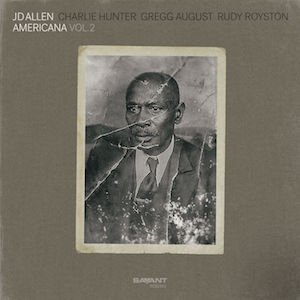Label: Impulse! Records, 2022
Personnel - Shabaka Hutchings: alto sax; Danalogue: keyboards, electronics; Betamax: drums.
The UK-based trio The Comet is Coming stakes their virtuosity claim in this current disc of whimsical instrumentals with a panoply of influences and hip mutations.
For their fourth opus, the group rides the crest of modernity with some homespun weirdness, offering a few flamboyant pieces suitable for dancefloors. An example is the opener, “Code”, whose EDM vibes are enriched with textural ostinatos and staccato saxophone lines seasoned with an Eastern flavor. Caustic synth layers build crescendos here, but take the form of warped and overpowering laser-focus beams on “Technicolour”. Another piece within the genre is “Atomic Dance Wave”, a punchy, frisky indie electronic rock inspiration that call to mind the energy of The Prodigy.
Despite the stylistic connections, the alchemic roads traveled here are varied in steepness, direction, and instrumentation. ”Lucid Dreamer” is a standout, evolving with a syncopated beat, gratifying melody, and Ensonic synth washes dispensing ethereal choir effects. The ominous “Angel of Darkness” conjures up a sense of fear before installing a three-time-feel groove that alleviates the jitters for a bit. It’s all very cinematic, and saxman Shabaka Hutchings riffs like a Brazilian cuíca before discharging trills, rhythmic figures, and angsty outcries. At the end of the line, an incendiary rock feel imposes.
Immediately following the frenetic, short-lived “Tokyo Nights”, we have “Pyramids” whose club/dance manner (redolent of Technotronic and Snap!) permeate the trap-knit hip-hop propulsion with flowability. In turn, “The Hammer” has a slow beat invading the dark atmosphere, with discoverable keyboards sweeps emulating harp sounds, and modulations that inspire Hutchings to expand.
Occasional sparkle and some interesting atmospherics can be found, but the music never went beyond the expected. Yet, followers and completists of the trio will most likely find what they’re looking for.
Favorite Tracks:
03 - Lucid Dream ► 07 - Angel of Darkness ► 10 - The Hammer








































